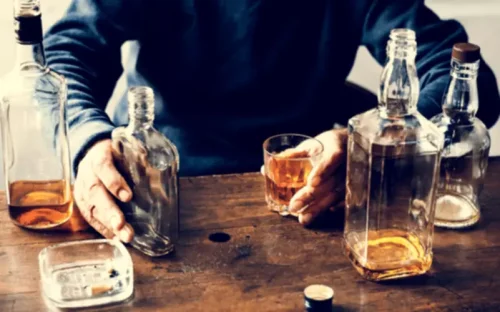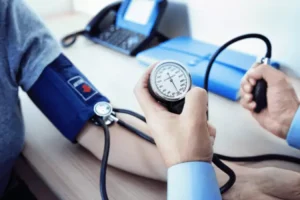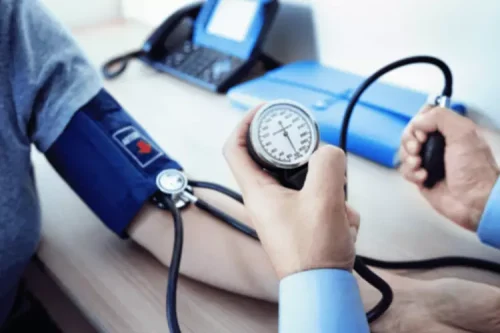Common Myths About Alcohol

But it does mean that you shouldn’t assume it’s benefiting your health, or that it’s guaranteed to be safe. Most of the health benefits of red wine can be gained from other food sources, while alcohol, no matter the situation, is toxic to your body. Many people may believe the myth that loading up on bread, heavy foods, or even drinking coffee will lower your blood alcohol level. The truth is that time passing is the only way for alcohol to wear off. Many people believe that their ability to hold their liquor means they don’t have a problem with alcohol. However, tolerance and the ability to hold your liquor are not indicators of whether you have an alcohol use disorder.
- Just as a person with diabetes can’t “choose” not to have diabetes, someone with alcoholism can’t simply stop drinking.
- We often toast to special occasions, and that glass of red wine may even have health benefits.
- One of the biggest misconceptions around alcohol is that it gives you energy, which may motivate you to drink more, especially during social situations.
- Evidence also shows that continuing to drink in moderation while in recovery may heighten your cravings for alcohol.
- If you think you may have alcohol use disorder or a related problem, such as binge drinking, you’re not alone.
MYTH: Children who drink soda are at a greater risk of becoming obese.
- Ultimately, despite the many alcohol myths out there, there really is no “safe” level of drinking.
- You may think that mixing an energy drink with your cocktail will help combat alcohol’s drowsiness effects.
- When you are ready to help your loved one overcome his or her addiction, Footprints is here.
- Aside from physical altercations, a single heavy night of drinking can strain or even injure your internal organs—including your stomach, liver, and kidneys.
All we can see are the repercussions and impact it leaves on the addicts and their loved ones. As a result, it’s easy to believe misconceptions about this invisible disease — but these false perceptions can ultimately be damaging to both recovery and relationships. Let’s take a closer look at some of these myths about alcohol and uncover the actual truth behind them.

#1: It’s Okay To Get Drunk Once in a While
- In fact, a massive study on the global burden of disease, covering 195 countries over more than 25 years, recently determined that there is no safe amount of alcohol.
- A 2019 study of alcohol use in England found that people in professional managerial jobs had more occasions to drink than manual workers, casual workers, and unemployed people.
- Last but not least, the “hair of the dog” method is another alcohol myth that gets repeated one too many times.
- However, alcohol use disorder can still be present even if it doesn’t seem to affect others.
- It’s important to monitor your alcohol intake, regardless of the type of alcoholic beverage you are consuming.
- In general, for brain health, I recommend people drink a maximum of one serving of alcohol once or twice a month.
- If you or someone you know is struggling with alcoholism and needs guidance and support in their recovery journey, reach out for help.
We can’t then get frustrated with those people because we built out a cultural norm around it,” he says. “So the actual cause (of any health benefit) probably wasn’t the alcohol at all,” Dr. Oesterle says. The data in the studies was correlative data, not direct causation data. Receive free access to exclusive content, a personalized homepage based on your interests, and a weekly newsletter with topics of your choice. So, while you may temporarily feel at ease in the moment, you can feel more stressed the day after.
Mixing Alcohol Makes You Drunker
In general, for brain health, I recommend people drink a maximum of one serving of alcohol once myths about alcoholism or twice a month. Another study found that social drinkers showed significantly reduced amygdala reactivity to threat signals when shown neutral and angry faces. This suggests that alcohol impairs their ability to pick up on social cues that others may be uninterested or angry. It’s easy to think that alcohol can help you fall asleep faster. That’s because alcohol is a nervous system depressant, so it may be easier to fall asleep.
- “If someone is in the habit of relaxing in the evening with a drink, find ways to sub that out once in a while instead of having it every day,” suggests Melendi.
- While many studies have suggested that a moderate amount of alcohol has health benefits, much of that research has been called into question.
- “There is no evidence that drinking in a particular order alters how sick you get,” Julia Chester, a behavioral neuroscientist at Purdue, told NBC.
- While it’s true that relapses can happen during the recovery journey, that doesn’t mean that treatment is ineffective.
- According to the Behavioral Risk Factor Surveillance System (BRFSS) survey, more than half of the U.S. adult population drinks alcohol in a given month.

The reaction will continue so long as alcohol continues to exist in the body. Drinking alcohol can leave you feeling more energetic and cheerful, but this is simply because it lessens your inhibitions, allowing you to indulge in unsafe acts. Since they have extra blood to reduce the alcohol, they will have a lower blood alcohol level than a female when an identical amount of alcohol. Men absorb alcohol faster than other variables, but alcohol affects men and women differently. If they weigh and drink identically, men and women respond differently to alcohol.


